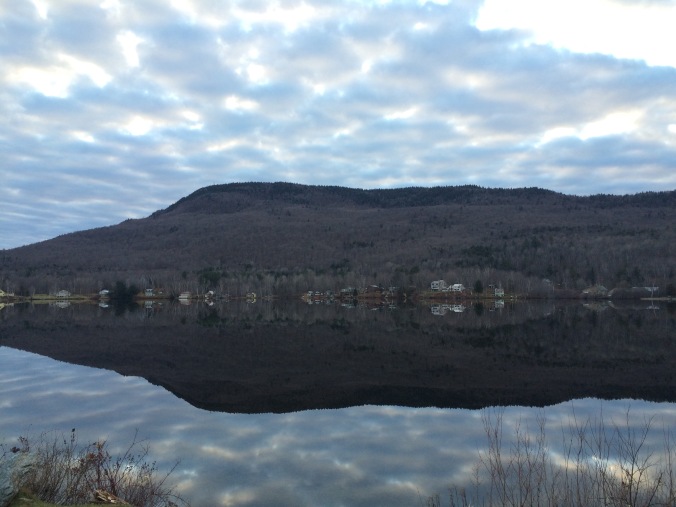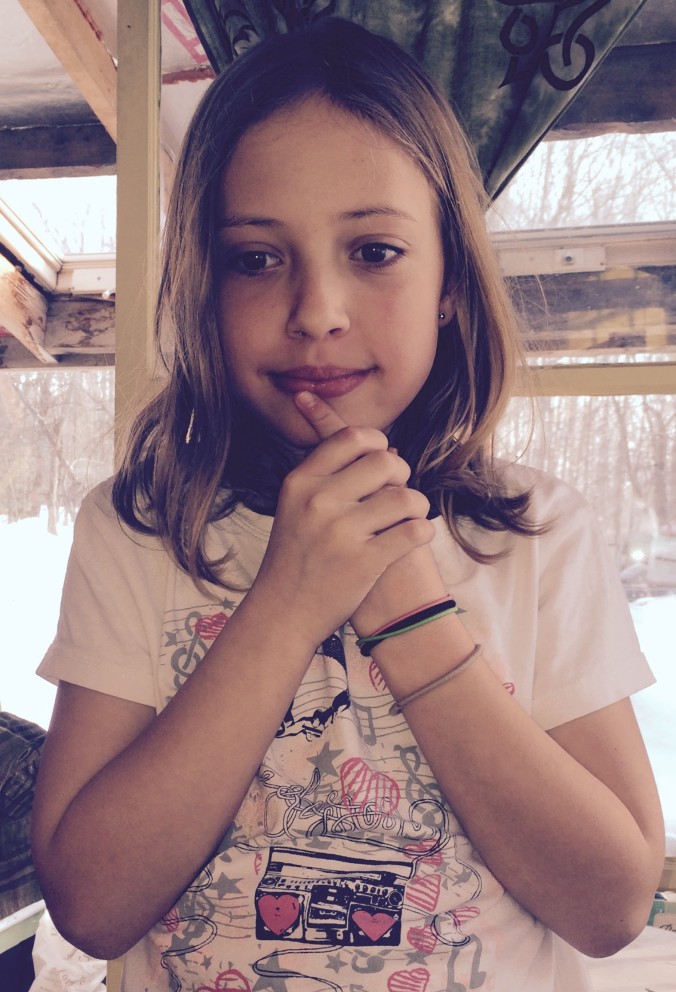Last evening, walking along our dirt road with my daughter, she chattered about our shadows in the lingering daylight, how the sun had merged us into one person, and we appeared to be one being with four legs and a curious kind of goose neck she had made from her hands.
While we were standing there, I suddenly realized I had been listening to the robins singing in a nearby maple tree, without any particular consciousness – and yet on some level I must have been listening keenly. Just recently returned, a whole flock of red-chested couples are nesting in the maples around the garden.
When we first moved to this house, we had two bird-stalking cats and the field was wooded then: the songbirds are not prolific as they are now. But, as all things go, our terrain has changed, and one benefit is this spring melody. How funny is the human mind: winter and cold has now fled our immediate memory, and it’s spring and seeds and the garlic pushing up through a mulch of rotting leaves.
We don’t have to live great lives, we just have to understand and survive the ones we’ve got.
– Andre Dubus





